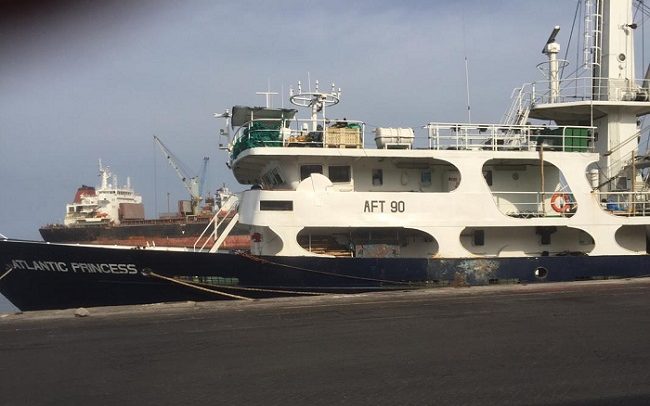The Gulf of Guinea of which Ghana is a part is now doubtlessly a dangerous maritime zone clearly on the radar of pirates armed to the teeth.
Ghana has in recent times been added to the target list of the pirates a reality which has gotten the Ghana Navy unusually busy.
Piracy used to be distant, a subject belonging to foreign news segments of the media, hardly attracting Ghanaians. Today it is part of the maritime security architecture of Ghana a fact which the Ghana Navy has not overlooked.
Ghana has recorded three or so incidences of piracy on her maritime zone and therefore sending a critical signal that all is not well. We have been sufficiently forewarned as a result of which we must be forearmed.
The recent pirate act in which a Ghana registered ship was boarded by the buccaneers is a daring act which points at how far the criminals can go to achieve their objective.
The Ghanaian crews in the recent incident have safely landed at Tema after their ordeal at the hands of the seaborne criminals; the next attack could trigger disturbing consequences.
Even as Ghana Navy speedboats are on the heels of the criminals we wish to once more advise that our fishermen and those living along the coast be educated about the reality of piracy and what to do when suspicious elements are noticed.
As in all criminal acts the security agents who are of course better primed to respond to pirate attacks the local persons along the coast and fishing on our waters must also be encouraged to support in the crusade against piracy.
The world has changed tremendously and the reality of piracy which our fisher-folks were unaware of in the past must be brought to their notice loud and clear.
Our Marine Police cannot be left out of the anti-piracy war. They might be lacking the modern gadgets to confront the pirates the shortcoming notwithstanding their support and its impact cannot be overlooked.
The pirates will widen their operations when they witness weaknesses in our security cordon. So far no major arrests have been made and the pirates could easily conclude that our waters are soft targets and roll out more daredevil missions.
It is our hope that the Navy will manage the situation by making our maritime zone less attractive for the pirates through robust missions.
There is also the need for the navies of the countries constituting the Gulf of Guinea to pool their resources so that they can jointly respond to the rising incidence of piracy more effectively. The annual multinational Exercise Obangame by the Gulf of Guinea countries should be widened in scope to send scaring signals to the pirates.
The Gulf of Guinea accounts for a chunk of international trade and so watching helplessly as this maritime zone is rendered insecure by gangs of pirates cannot be acceptable. Under the circumstances it would not be out of place to seek international support to break the neck of the now growing pirate industry on the Gulf of Guinea.


